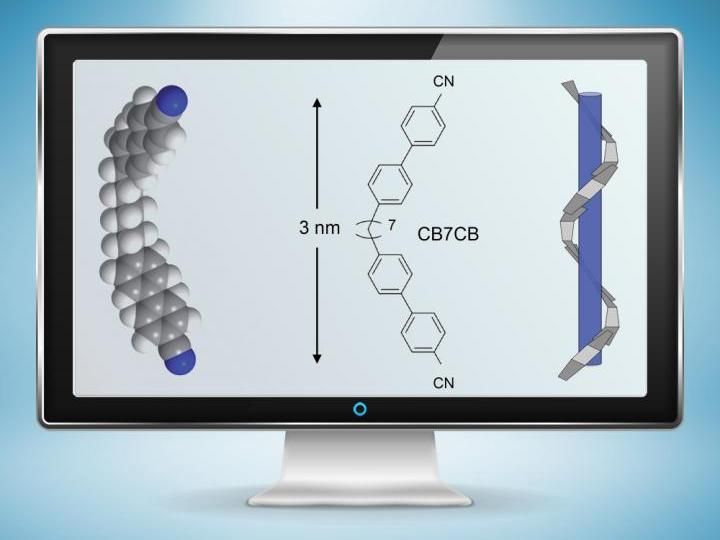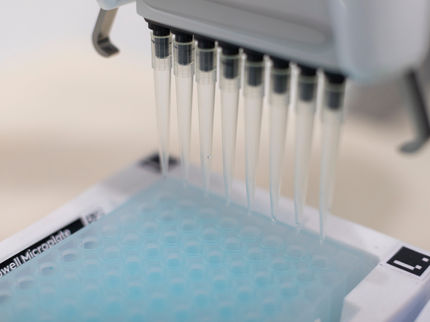New test makes cheating with drugs in sports easier to detect
A new mass spectrometry test can help sports anti-drug doping officials to detect whether an athlete has used drugs that boost naturally occurring steroid levels. The test is more sensitive compared to previous alternatives, more capable of revealing specific suspicious chemical in the body, faster to perform, and could be run on standard drug-screening laboratory equipment. The new test is announced in a special issue of the Journal of Mass Spectrometry that concentrates on detecting drugs in sports.
One of the roles of the masculinising hormone testosterone is to increase muscle size and strength. Taking extra testosterone, or taking a chemical that the body can use to create extra testosterone, could therefore enhance an athlete's performance. For this reason taking it is banned by the World Anti-Doping Agency (WADA).
The exact level of testosterone varies considerably between different people, so simply measuring total testosterone in an athlete's urine can not show whether he or she has deliberately taken extra. There is, however, a second chemical in the body, epitestosterone, which is normally present in approximately equal proportions to testosterone. Comparing the ratio of testosterone to epitestosterone can then indicate whether testosterone or a precursor has been taken.
The problem is that it is not always easy to measure these two substances, particularly as they are only present in urine at very low concentrations.
A team of scientists the Sports Medicine Research and Testing Laboratory at the University of Utah have developed a test that makes use of liquid chromatography-tandem mass spectrometry. This method has incredibly high sensitivity (down to 1 ng/ml) and increases the power with which officials can search for both testosterone and epitestosterone within a sample.
"Our system means that we can determine the testosterone/epitestosterone ratio in a sample with greater confidence, and therefore be in a better position to spot doping violations without falsely accusing innocent athletes," says lead investigator Dr Jonathan Danaceau.
"Not only is the test more sensitive, it is also faster to perform," says colleague Scott Morrison.
This paper is part of a special issue for the Olympic Games from the Journal of Mass Spectrometry which focuses of drug use in sport. The issue is available free of charge online for one month.
Most read news
Organizations
Related link
Other news from the department science

Get the chemical industry in your inbox
By submitting this form you agree that LUMITOS AG will send you the newsletter(s) selected above by email. Your data will not be passed on to third parties. Your data will be stored and processed in accordance with our data protection regulations. LUMITOS may contact you by email for the purpose of advertising or market and opinion surveys. You can revoke your consent at any time without giving reasons to LUMITOS AG, Ernst-Augustin-Str. 2, 12489 Berlin, Germany or by e-mail at revoke@lumitos.com with effect for the future. In addition, each email contains a link to unsubscribe from the corresponding newsletter.
Most read news
More news from our other portals
See the theme worlds for related content
Topic World Mass Spectrometry
Mass spectrometry enables us to detect and identify molecules and reveal their structure. Whether in chemistry, biochemistry or forensics - mass spectrometry opens up unexpected insights into the composition of our world. Immerse yourself in the fascinating world of mass spectrometry!

Topic World Mass Spectrometry
Mass spectrometry enables us to detect and identify molecules and reveal their structure. Whether in chemistry, biochemistry or forensics - mass spectrometry opens up unexpected insights into the composition of our world. Immerse yourself in the fascinating world of mass spectrometry!
Topic World Chromatography
Chromatography enables us to separate, identify and thus understand complex substances. Whether in the food industry, pharmaceutical research or environmental analysis - chromatography opens up a treasure trove of information about the composition and quality of our samples. Discover the fascinating world of chromatography!

Topic World Chromatography
Chromatography enables us to separate, identify and thus understand complex substances. Whether in the food industry, pharmaceutical research or environmental analysis - chromatography opens up a treasure trove of information about the composition and quality of our samples. Discover the fascinating world of chromatography!
Last viewed contents
HLA-DR17
Researchers work to fingerprint hydrofracking water quality
A little less force: Making atomic force microscopy work for cells
Category:Fluid_statics

What screens are made of - New twists (and bends) in LCD research



























































